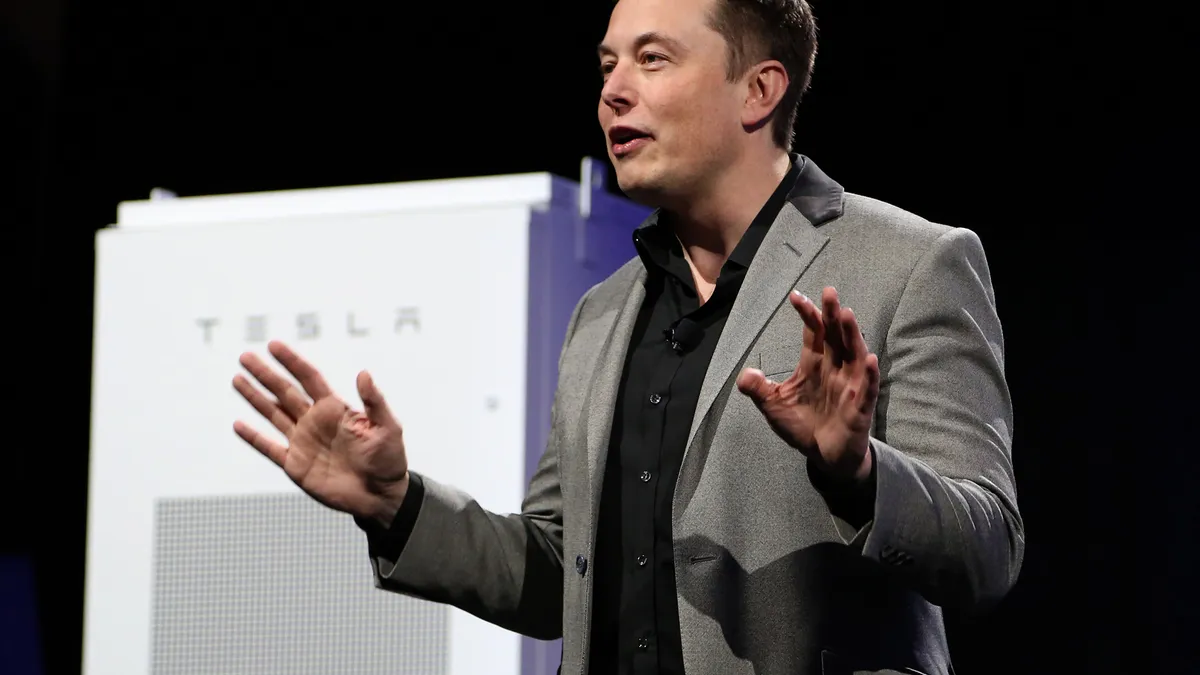Dive Brief:
- Tesla on Tuesday slashed the price of its residential solar systems as much as 25%, as it seeks innovative ways to reduce soft costs that could allow the company to retake market share.
- In 2016, the company purchased what at the time was the largest residential solar business in the country, SolarCity, but Tesla has since struggled to grow its business, falling from the first to third-ranking solar company in the U.S., now trailing Sunrun and Vivint.
- Tesla reported first quarter earnings last week, notching a net quarterly loss in excess of $700 million. The company saw first quarter solar deployments fall to 47 MW, down from 73 MW in the fourth quarter of 2018.
Dive Insight:
Tesla is known for its audacious plans, and news of the price cuts could give a much-needed boost to the company's solar revenues. And if the company is able to execute, the long-term impact could be lower prices for residential solar systems from more installers.
"As ever with Tesla, we need to wait to see if those prices do materialize in the quotes people receive and if they can complete those installations on time," Navigant Senior Research Analyst Roberto Labastida said in an email to Utility Dive. "But I think the competition will have to take the hit once customers start comparing their quotes with those quotes from Tesla, so prices will fall overall."
"As with any price war, this will have consequences for the industry as a whole," Labastida said.
Tesla says its new pricing could undercut national averages by about 40%. A company official told the New York Times that customers would pay from $1.75/watt to $1.99/watt, depending on location. The company has made several changes to facilitate the lower prices, including standardizing how customers can order systems.
Solar systems will now be sold in 4 kW arrays, and customers may be asked to do some work themselves — such as taking and sending photographs of the site and meter, to reduce the need for site visits.
"Regarding the viability of achieving those prices, I do believe it is possible," Labastida told Utility Dive, citing the abundance of "slag," or soft costs, in the U.S. market. "The prices proposed by Tesla are average or even expensive if you compare them with residential prices in Europe or Australia which have average prices around $1.50/W."
The Times also reported Tesla intends to ramp up sales of its "solar roofs" in the second half of this year.
Tesla unveiled the solar roof two years ago, but it has yet to be rolled out at scale. The product aims to tie together an energy-transportation company strategy, while at the same time offering customers a high-end, integrated roof/housing product that look like tiles rather than photovoltaic panels.













